Glitz, glamour and a love of power: How Peter Mandelson won over Donald Trump
Having known the British ambassador to the US – aka ‘the prince of darkness’ – for more than 30 years, Anne McElvoy can attest to his brilliance at anticipating shifts in mood, something that will come in handy when making trade deals with a volatile American president


Peter Mandelson’s favourite look is power with a large side-serving of bling, and, while marking the outline of a new US-UK trade deal this week, he did not disappoint. Whether it was his limousine journey to the White House, holding a folder containing the long-awaited agreement in principal, or Donald Trump heralding his guest’s “great job” and “beautiful accent”, it was pretty much his idea of the perfect day.
Crucially, a politician-turned-ambassador/negotiator has achieved the other thing Mandelson most relishes doing – which is proving his rivals wrong. The man who once thundered he was “a fighter, not a quitter” when he made a political comeback from one of many missteps in his ministerial career under Tony Blair has not only helped see a deal over the line sceptics predicted would not happen, but he has done so within months of taking office from his esteemed predecessor Karen Pierce.
Mandelson has toiled for months for his day of glory, hosting glitzy parties among the columns and gardens of his stylish Washington residence. Two weeks ago, I attended what embassy insiders called the “triple” – three major social events on consecutive days in a row at the end of April for the Washington elite and Rachel Reeves’s visit. While nights were spent pressing the flesh, daylight hours were for helping trade negotiators get the small print of deals on cars, steel and meat exports over the line.
That is the showmanship which allowed Mandelson to take to the stage and highlight not only the closeness of UK and US “values” – but a new closeness to Trump, who revels in being the frontman of negotiations.
Mandelson understood instinctively how to play this, by highlighting the US president’s personal involvement and even slyly praising his toughness as he noted in the announcement of the deal: “In an 11th-hour intervention … [Trump] demanded even more out of this deal than any of us expected.”
In truth, this is a deal that relieves the pain points on the UK, rather than creating a vast opportunity for growth. The deal will cut tariffs from over 25 per cent to 10 on British cars (mainly classic and luxury ones) entering the US per year and ushers in some good news for embattled Labour heartlands with a cut in tariffs on British steel and aluminium to zero. A lot of US beef will land on the UK market in return (13,000 tonnes tariff-free), but at least the difficulties of the UK being asked to end a digital services tax on technology giants was put aside.
It’s not exactly “Liberation Day,” for the UK economy after years of trying to do deal with Washington, but the outcome also cements Mandelson’s position at the heart of power in DC. When I teased him in the party throng in April about being publicity shy and giving relatively few interviews, he shot back with mock haughtiness: “I am a diplomat now!”
The old waspishness which so often stung Labour internal foes is still there. Discussing a particularly lengthy event ambassadors had been are obliged to attend with an earnest guest, he told them it had been “a wonderful” evening, while giving a small but discernible side wink to journalists in the huddle behind his Ray Bans.
Mandelson trod in the wake of many 2025 mea culpas flowing from people who derided America’s 45th president as a dangerous aberration, only to find that he is back and more consequential than ever.
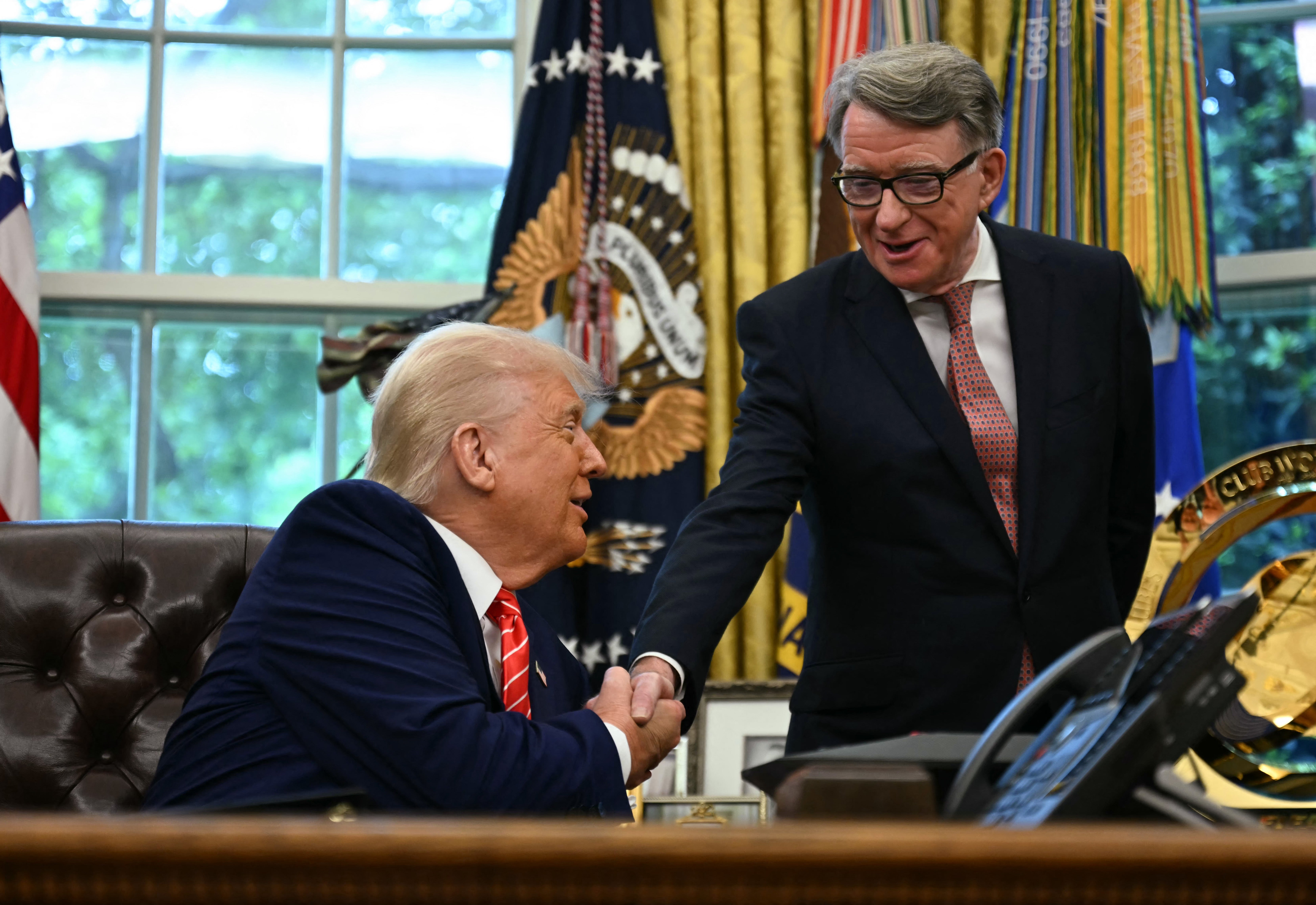
In Mandelson’s case, before being confirmed as UK ambassador to Washington, he was taking no chances. On Fox News, the default channel of right-wing America, he expressed regret for previous comments that Trump was “a danger to the world” and a “bully”, describing them as “ill-judged and wrong”. For good measure, he said the returning president had earned “fresh respect” with his “dynamism and energy”.
The interview was classic Mandelson: a fleet-footed, tactical play, intended to ensure that the formal diplomatic agrément to serve as the UK’s ambassador to Washington would have no last-minute thumbs down from a famously mercurial president.
Dubbed “the prince of darkness” for his behind-the-scenes influence, this was part of a well-formed strategic plan by Mandelson. For those close to the president who had doubts about his appointment due to his Labour background and connections to China and Russia, he was signalling that he is among a group favoured by Trump – those who have changed their minds about him since 2016. “He loves a convert,” says one senior diplomat in DC. “So Peter needed to show he is one.”
In an interview in the Financial Times a few weeks after that, he continued to signal to Trump’s circle that he was on side, saying: “What they will discover is I’m not an uber-liberal, I’m not a wokey-cokey sort of person, and I’m pro-market and pro-business.”
For a man who has pursued success since supporting Tony Blair in the early 1990s, being named UK ambassador to the US, was a crowning moment. Had Kamala Harris won the election, it would have been David Miliband, who currently heads the International Rescue Committee in New York, moving to Washington, not him. But, as has so often been the case with Mandelson, fortune was on his side.

“Everybody knew it could not be David if it was Donald in the White House,” one member of Starmer’s close circle tells me. “You couldn’t imagine them riffing together. You can totally imagine Peter entertaining DT and getting his trust.” With support coming from Starmer’s inner circle, Morgan McSweeney (who started his career working for him) and stalwart cabinet office minister Pat McFadden, it was only a matter of time. And “Peter being Peter,” as Blair once neatly put it, this track was not one he was unprepared for.
Apart from a desultory presence in the Lords, Mandelson has been out of politics and more focused on building his public affairs company, Global Counsel. He offered Starmer free advice to help reboot Labour after the far-left Jeremy Corbyn experiment ended in defeat and disarray. Having known Mandelson since 1994, I can attest that he is brilliant at anticipating shifts in mood. He can also be mercantile: as much at home in the business-class world of dealmakers and status brokers as earnest public-service types. He is, as one ally puts it, “a study in fluidity”, but, at the same time, “Labour to the core” by loyalty and dynasty – he is the grandson of the powerful post-war deputy PM, Herbert Morrison).
In many ways, the grand Lutyens residence at 3100 Massachusetts Avenue – a DC social and political hub – is key to all this. It reopened in 2021 after a major refurbishment costing well over £100m, as part of a plan to ensure “Brand Britannia” shines in competitive Washington. Works by Grayson Perry and Andy Warhol hang on the walls. It is all swish velvet curtains and deep-pile carpets.
Washington A-listers rarely turn down an invitation – only the French and Swiss are viewed as serious competitors in party-hosting. And there is always a bit of British humour in the mix – the canapés are often mini fish and chips in newspaper wrapping, served with top-notch wine.
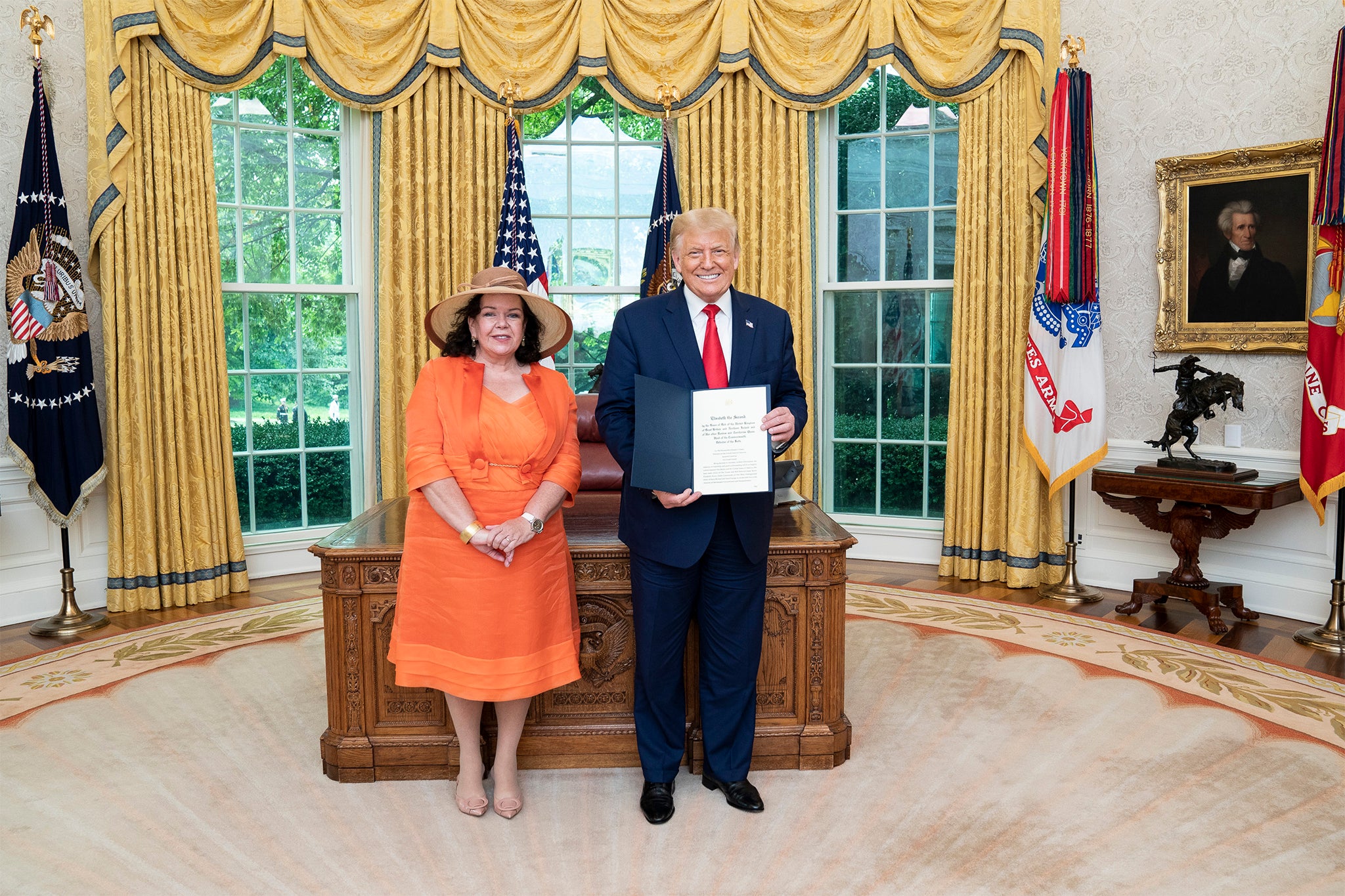
Dame Karen Pierce, the UK’s most senior female diplomat, was in charge here since 2020, and was ambassador to the UN for three years before that, so was well-known on the US “diplo circuit”. A bubbly mix of off-the-cuff charm and sharp political instincts, she was well-liked by Trump himself – serious currency in the new Republican politics, where people can float in and out of favour in a heartbeat.
While she told me last June that she was in no hurry to leave – “I will have to be dragged out of here by my fingernails!” – as the shape of the election results emerged, I asked if she thought Mandelson would be a good fit. “Whoever it is has to have pizzazz,” she replied. “He has pizzazz! You have to make an impact here and stand out.”
On the pizzazz front, I can offer some background, as someone who hit the dancefloor in a Prague discotheque with the prince of darkness early in the Blair years. This was not an easy period in Mandelson’s studies, and he often complained about political journalists. Relations could go from warm to frosty if an article displeased him, or a word irked him, by way of personal letters written in impeccable green-ink script on cream notepaper.
But after a long day at some forgettable conference, we wandered into the Old Town and had a long and spectacularly stylish (if I say so myself) boogie. Afterwards, I wrote for The Spectator that: “The member for Hartlepool’s taut thigh muscles were locked behind mine as we flung this way and that. We were the Olivia Newton-John and John Travolta of the Czech Republic: for one night only.”
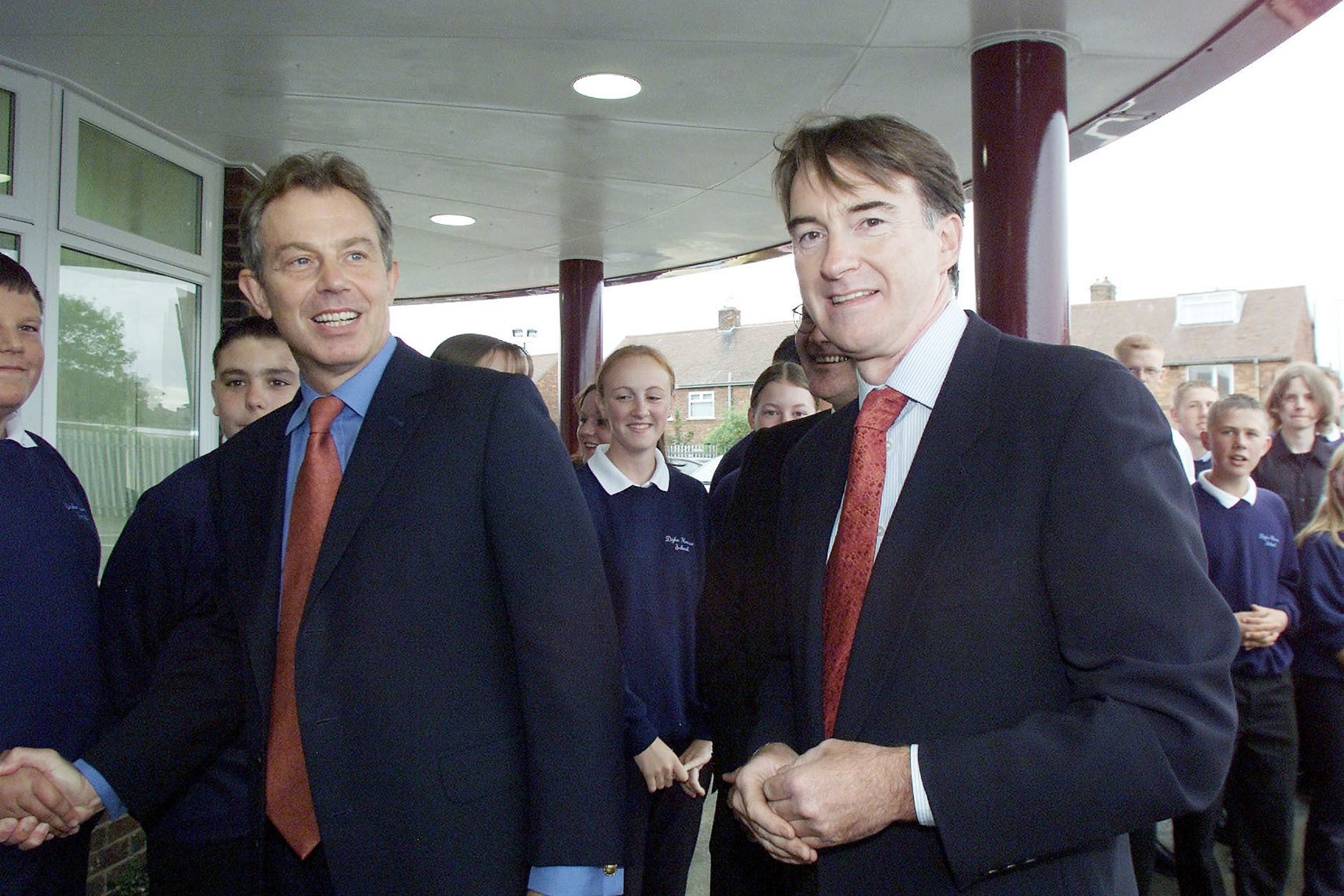
It was a nice insight into Mandelson’s love of la dolce vita. He was famously pictured relaxing in an Eames chair when a minister, and in his Hartlepool constituency home he had an upstairs room with boxes full of 1980s records by artists such as The Communards, Bronski Beat, The Jam and Squeeze.
Key to Peter’s success is how he understands Mar-a-Lago’s world of brash luxury and transactional functionality. One recent visitor notes that “everything that could be branded as Trump is there” – from the wine to the placemats. There are some quirky reflections of the president’s known fixation on cleanliness – the swimming pool has a sign instructing guests not to use it if they have had diarrhoea. Dinners (and speeches) are long. “It is vulgar and showy and an expression of the showman side of Trump’s personality in a way that the White House can never be,” says one frequent visitor.
No one ever doubted that the new ambassador didn’t have the charm – and steel – to build relationships in this environment. Mandelson’s liking for “rich world” connections is well-known and has landed him in hot water on occasion. He lasted just five months in his role in the old Department of Trade and Industry, resigning following the revelation that he had earlier accepted a hefty loan from Geoffrey Robinson, who was then the paymaster general, to buy a house in Notting Hill.
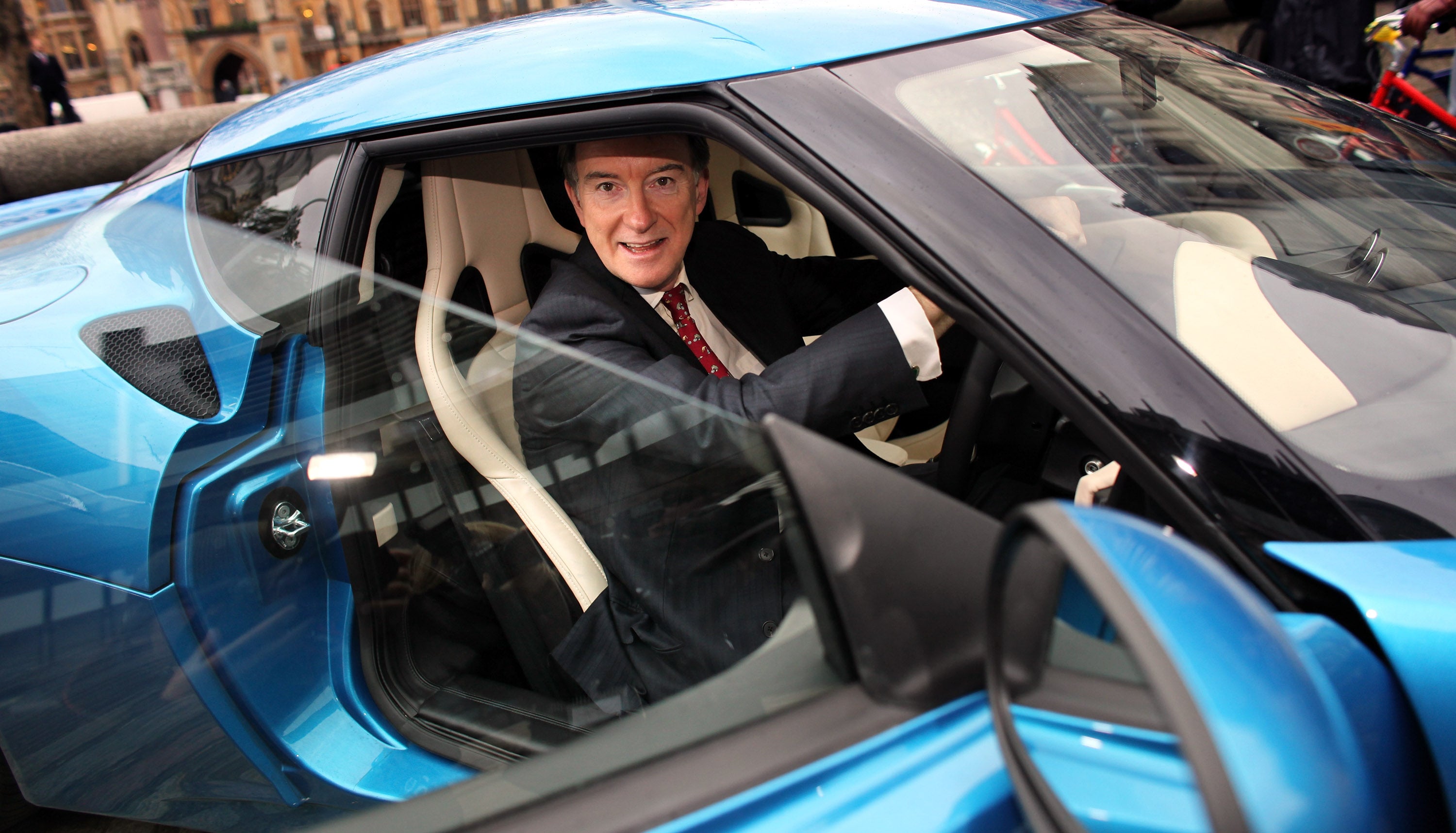
He returned as Northern Ireland secretary in 1999 but had to quit in 2001 after being accused of helping one of the Hinduja brothers get a British passport in return for a £1m donation to the Millennium Dome. He was cleared by an inquiry, but then came another brush with trouble when he was revealed to have visited the (now sanctioned) Russian oligarch Oleg Deripaska on his yacht in 2008.
Overall, however, closeness to prominent, well-heeled friends has paid off. His closeness to Scott Bessent, the hedge funder and new treasury secretary – one of the most powerful roles in the new administration – has no doubt proven useful.
Before he was in place, he told friends that he wanted a “win-win” relationship for the UK and US. This week, his dreams for such co-operation seemed to be confirmed. Mandelson and his quietly spoken Brazilian husband, Reinaldo Da Silva (the two married in 2023 having lived together since 1998), are now firmly part of the Washington set. A president who loves glitz, glamour and power has a British ambassador he can do business with. The Mar-a-Lago dancefloor beckons, but that nimble and ambitious footwork will need to be especially assured to avoid a tumble in the future.
Anne McElvoy presents the transatlantic Power Play interview podcast for POLITICO
Join our commenting forum
Join thought-provoking conversations, follow other Independent readers and see their replies
Comments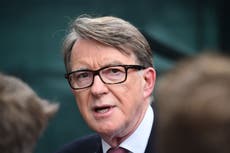
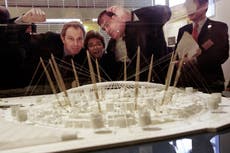

Bookmark popover
Removed from bookmarks